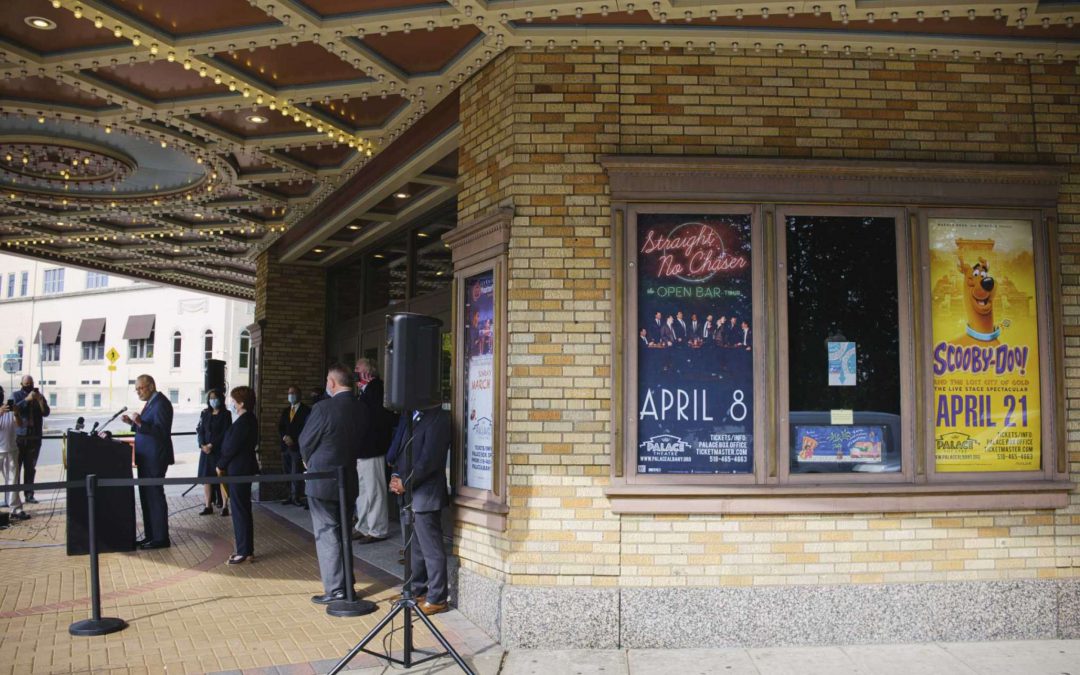WASHINGTON — Local performing art venues are relieved to know help is on the way after Congress incorporated a $15 billion grant program for art and entertainment venues struggling financially from the pandemic into the most recent COVID-19 relief package.
“(These funds are) critical to ensuring that when all of this over, that our creative economy bounces back, you know, stronger than ever,” said Kristen Holler, director of Albany Barn Inc. and Schenectady’s Electric City Barn Inc.– two venues that provide low-cost housing and creative workspaces to artists as well as performances.
A number of owners of area performing art venues that have largely been closed since March already have long lists of what they need to reopen safely when that time comes and welcomed the federal funding.
“I’m so grateful that folks organized and got together to say, ‘Hey, when we get a handle on this pandemic, we’re still going to need our arts and cultural venue,’” said Holler. “We have to do something to support them.”
The Grants for Shuttered Venue Operators, also known as the Save Our Stages Act, that provides funding for local arts venues across the country affected by the pandemic was sponsored by Sens. John Cornyn, R–Texas, and Amy Klobuchar, D–Minn., and co-sponsored by over 200 members of Congress, including Senate Majority Leader Chuck Schumer, D–N.Y. President Donald Trump signed the $900 billion relief package on Dec. 28.
Cornyn said he looks forward to seeing “future generations of Texans learn our history through music at the world-class venues and dance halls that call the Lone Star State home.” Klobuchar said the grants “will get small entertainment venues the help they need to make ends meet and serve our communities for generations to come.”
Theaters, movie theaters and other artistic places already are eligible for federal funding under the Paycheck Protection Program, but those funds are provided through loans, while the new $15 billion program provides grants that do not have to be repaid.
According to the Small Business Administration, the organization responsible for the distribution of the grants, eligible applicants can apply for a grant equal to 45 percent of their gross earned revenue with a limit of $10 million per grant.
The money may be used for rent or mortgage payments, state and local taxes, normal business and administrative expenses and capital expenses for live productions, among other things.
While the application process has not yet been finalized, the SBA said the first grants will go to arts venues that lost 90 percent or greater of revenue loss during the pandemic, followed two weeks later by those that lost 70 percent or more and then those who lost at least 25 percent. During the first 59 days, the grant program will set aside $2 billion for applicants with no more than 50 full-time employees.
SBA spokeswoman Andrea Roebker noted that the agency is developing the application portal but encouraged venue operators to check the SBA website for resources to prepare for submitting grant applications.
Owen Smith, producing artistic director at the Playhouse Stage Company in Albany, remembered canceling the remaining performances of a play in March with the hope that it could resume in a few weeks.
“There came a point where the writing was really on the wall for the arts industry,” said Smith. “But it was the right thing to do because, obviously, the priority has to be protecting life and protecting health.”
Philip Morris, CEO of the Proctors Collaborative – whose holdings include four theaters including the Capital Repertory Theatre in Albany and Proctors Theatre in Schenectady, said he laid off more than 200 part-time employees when he shut down his venues.
Some of the venue operators who plan to apply for the grants said they would use the money to bolster safety protocols.
Allen Phelps, producing artistic director at the Theatre Barn in New Lebanon, said that he would hire additional cleaning crews for post-show cleanups and replace ventilation systems in the theatre.
Smith said that a grant would allow him to pay his staff as they prepare for the resumption of live theater.
“Being able to have government support, to keep our employees engaged and to keep them doing the work to be ready to reopen, that’s going to help us get to that finish line much faster,” he said.
All of the organizations did agree that the $15 billion will help ensure that the arts community can survive.
“We are enormously grateful that the legislation has been passed,” said Elizabeth Sobol, president and CEO of the Saratoga Performing Arts Center. “At a time when we are seeking ways to heal and unite, the arts and live performance bring us together.”


